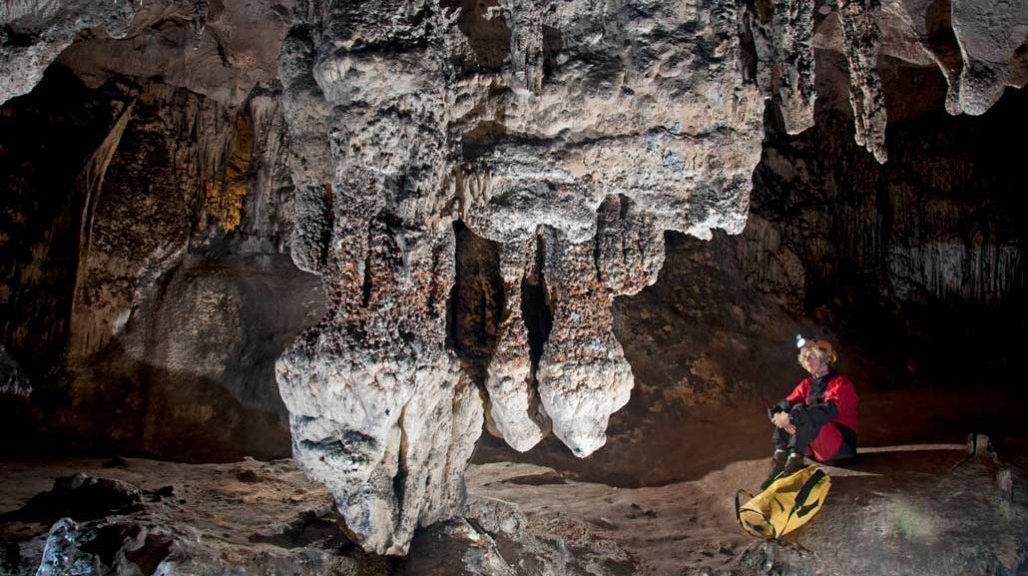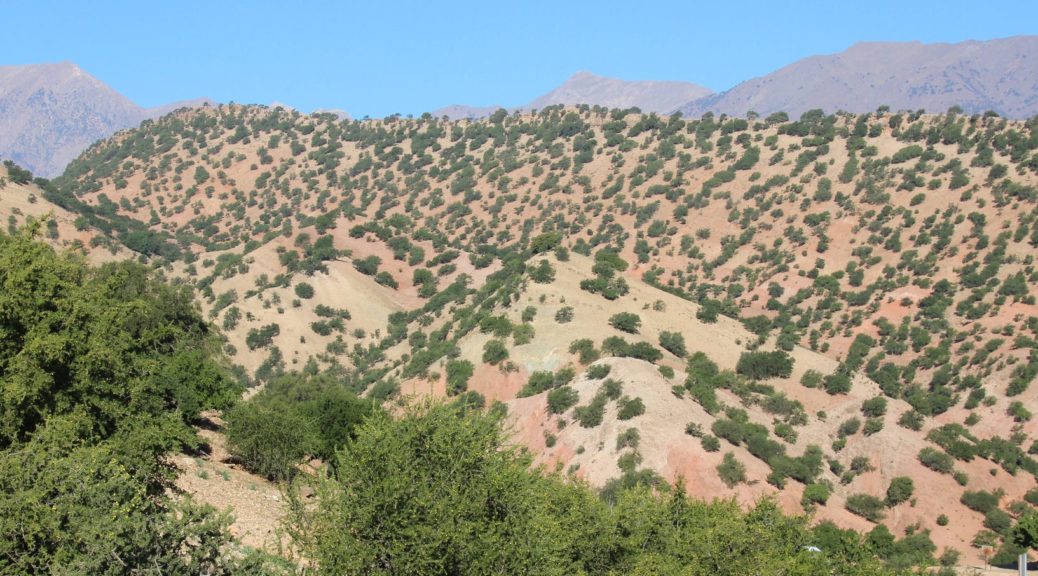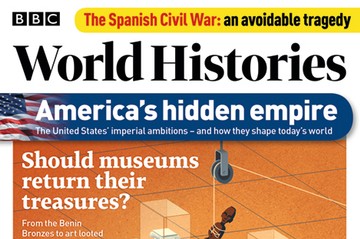I recorded neuroscientist Mariano Sigman in Madrid for BBC Radio 4’s Analysis program “Can I Change Your Mind?”
His segment is from 5:36 to 8:14 in the half-hour show, which was presented by entrepreneur and writer Margaret Heffernan.
All posts by LL
Ancient crystal growths in caves reveal seas rose 16 meters in a warmer world
The future of sea level rise may be written into the walls of coastal Spanish caves.
Mineral “bathtub rings” deposited inside the limestone Artà Caves on the Balearic island of Mallorca show how high seas rose during the Pliocene Epoch — a time when Earth was about as warm as it’s expected to get by 2100. Those mineral deposits suggest the planet’s seas were around 16 meters higher on average than they are today, researchers report August 30 in Nature.
Continue reading Ancient crystal growths in caves reveal seas rose 16 meters in a warmer worldTaming the genie in the forest of the devil’s trees
It wasn’t long after the cairns appeared in the forest that women from surrounding villages began using them in a purification rite that ended in leaving underwear on the stone mounds. The cairns were new to the forest, but the women’s purification rite was not. In the ritual, older Berber women guided younger women into the forest, and the younger women washed themselves under the open sky and prepared their spirits for finding a lover. Forest rangers had built the cairns to mark the borders of Morocco’s national forests. They were designed to protect argan trees – which some Berber call the “tree of the devil” – from use and harvesting. But the local women turned the cairns into something else.
When Morocco’s government established Souss-Massa National Park in 1991, the Berber people were already familiar with temporary prohibitions on forest use, says anthropologist Romain Simenel of the Institute of Research for Development in Marseille, France. But they were accustomed to setting the prohibitions themselves, through a system called agdal, which involves religious stories laden with mischievous genies who curse parts of the forest, and community rituals that reopen the way to harvesting or grazing among the argan trees.
Instead, national authorities were now insisting on prohibiting access to a core zone of the argan forest, allowing limited access to a second zone, and leaving a third zone to more community-led use. They sought to protect the forest from both desertification and local land management decisions. But the genies in the argan forest are not easy to tame.
Continue reading Taming the genie in the forest of the devil’s treesIn search of the missing
A BBC Radio 4 series, Spain’s Lost Generations, looks
at the ongoing legacy of Spain’s civil war and dictatorship. Matt Elton spoke to its presenter, Lucas Laursen
Which groups of people does this series deal with, and what happened to them?
Our series deals with people killed or otherwise disappeared during the Spanish Civil War and the subsequent dictatorship. More than 100,000 men and women are still missing. One episode focuses on people executed by Franco’s regime, and on the families who are only in the past decade or so recovering those remains from mass graves. The other is about people affected by the state-initiated theft of babies, which started during the war and continued through the early years of democracy. In some cases these people are now beginning to recover their identities and their families.
How did you find out about their stories?
Thanks to a growing civil society movement that began in the early 2000s, more Spaniards are learning where their lost loved ones are buried – or, in the case of some stolen babies, where they are now living. More than 8,000 bodies have been recovered from mass graves since the first exhumation in 2000, and we followed several families we met via those organisations through different stages of their journeys of recovery.
We recorded at a ceremony in Guadalajara, during which the organisation returned the remains of 22 people to living relatives. Unfortunately, I know of far fewer reunions of families with stolen babies, but we tried to follow some of those threads, too, and I suspect we’ll hear about more those in the future.
Are there any cases you found particularly striking or moving?
The most moving moments for me came when I met people who had lost family members. Some had been children during the war, while others had lost babies at the same Madrid hospital where my daughter was born. Meeting these people in person helped me experience how the human toll of the Spanish Civil War and the subsequent dictatorship and the healing it needs are still unfinished.
What do these stories tell us about the wider legacy of the civil war?
I hope listeners will hear just how unfinished that business is. We spoke with government bureaucrats and policymakers, activists and legal experts, each with their own prescription for healing. The generation of people doing the recovering isn’t composed of those who survived the war or lived under the dictatorship, but the generation afterwards. That taught me something about how slow people are to overcome fear, and how slow democracies are to take root. Perhaps, after hearing these voices, listeners will have their own ideas about what it takes to mend a rift like Spain’s – and how important it is to avoid them in the first place.
First published by BBC World Histories: [pdf].
Listen to the radio documentaries for BBC Radio 4 here: Franco’s Disappeared and The Missing Children.


